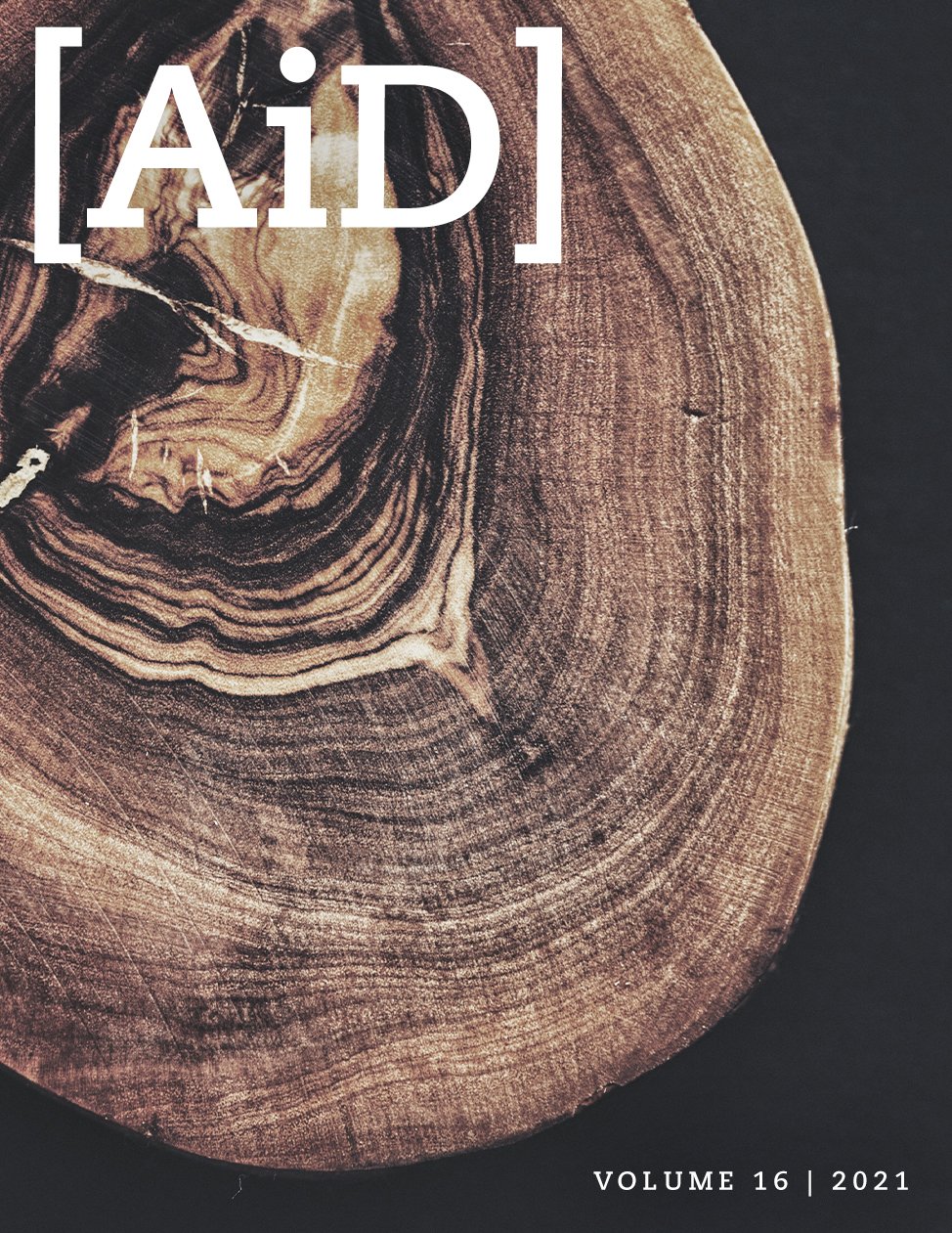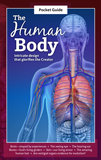
Immunity and Creation Science
Why God created the human immune system in a pre-Fall world and other considerations from a biblical creation perspective
While the immune system does not tend to feature prominently in creation science discussions, creation scientists have done good work in answering questions related to the immune system. In the process, they have provided answers to questions that have troubled people for years: “Why did God make viruses?” “Where did disease come from?” “Why would we need an immune system if there were no diseases in a prefall world?” “How and when did these things develop?”
The immune system does amazing work fighting off pathogens. But where did those pathogens come from? According to Genesis 3, after man’s sin, God cursed the earth and everything on it. Since there was no new creation after the fall (though there were changes in the way things operated, as outlined in the second half of Genesis 3), the kinds of viruses and bacteria that now cause disease already existed. In fact, many pathogens are closely related to helpful microbes. However, they did not cause disease before the fall. What happened?
Microbes
Creation scientists have proposed that both bacteria and viruses were beneficial prior to the fall. Dr. Joe Francis has proposed that viruses and bacteria were part of what he terms organosubstrate.1 The organosubstrate served to link humans to their environment. The viruses and bacteria helped humans (and other organisms) uptake nutrients. In return, the bacteria and viruses received shelter and protection.
The microbiome has been associated with many benefits for humans, including improved gut microbiota in breastfed infants, digestive system benefits, and pathogen resistance.
Of course, bacteria have other functions as well. One of them is making up the microbiome. The microbiome has been associated with many benefits for humans, including improved gut microbiota in breastfed infants,2 digestive system benefits,3 and pathogen resistance.4 The immune system interfaces with the microbiome and helps regulate it.5 Thus the immune system is not just about defending the body from diseases; it is also regulatory.
Left unchecked, rapidly reproducing bacteria could overpopulate. This is where bacteriophages come in. Bacteriophages are viruses that infect bacteria. By infecting bacteria, they help keep the bacterial population down to manageable levels. This would not be a problem in a pre-fall world, where death as a consequence of sin wouldn’t exist, because neither bacteria nor bacteriophages are alive in the biblical sense of the word. The Bible refers to living organisms as “having the breath of life” (Genesis 2:7, 6:17, 7:15, 22). Bacteria lack this key trait, and viruses aren’t even considered to be alive by most biological definitions. Therefore, the death of either before the fall is not problematic for a biblical creationist.
Many bacteriophages live inside humans and mammals. These bacteriophages apparently have the ability to recognize bacteria that are members of the host microbiota while simultaneously being ignored by the host immune system.6 In fact, the bacteriophages serve as “cloaks” for the members of the normal microbiota!7 They embed into the bacterial genome and produce antigens on the normal microbiota, thus hiding the bacteria from the host’s immune system. Since the bacteriophages can tell the difference between normal gut microbiota and pathogenic bacteria, they infect the pathogens and protect the native inhabitants of the microbiome. This serves as a powerful confirmation for Dr. Francis’ organosubstrate model.
Dr. Francis’ model not only explains why God created microbes, but also gives us hints as to the purpose of the immune system. Microbes were created to help larger organisms. And since the immune system helps regulate the microbiome, part of its pre-fall function is hinted at here.
The Immune System
The immune system fights against invading pathogens by means of special proteins called antibodies or immunoglobulins. There are a wide range of antibodies across the human immune system that enable the body to fight intruding pathogens successfully, even remembering previous pathogenic attacks to better fight persistent invaders.8 Prior to the fall, the antibodies probably served to help keep the microbiome population from exploding.9 These antibodies, with their exquisite structure and function, demonstrate irreducible complexity and throw a significant monkey wrench into the evolutionary story.10 Evolutionists have postulated a number of potential explanations for the origin of the mammalian immune system, but none solve all the problems for a supposed naturalistic origin of the immune system.11 Even so, they are often represented as likely to the unsuspecting public.
How Did They Change?
If microbes were originally designed to be very good, then how did they become disease causing? A broad answer is that things changed at the fall.
If microbes were originally designed to be very good, then how did they become disease causing? A broad answer is that things changed at the fall.12 For example, it has been proposed that the Staphylococcus bacteria were created on the skin and in the nose as beneficial bacteria.13 However, in the post-fall world, some Staphylococcus bacteria can be pathogenic. It has been hypothesized that this condition came about after the fall as the Staph bacteria diversified and mutated.14 Diversification specialized different Staph bacteria for different environments, and mutations damaged or destroyed the normal mechanisms for interactions between two original symbiotes. This led to a formerly symbiotic bacteria proliferating and becoming pathenogenic in their host.
The human immune system in a pre-fall world would still have had functions. Regulating the microbiome, reducing the bacterial population, and keeping microbes from straying from their assigned places would all have been part of the immune system’s pre-fall function. Helping it in this task would have been the environmental organosubstrate and the viruses and bacteria that are part of the microbiota. This data explains the created purpose of both the immune system and microbes.
Answers in Depth
2021 Volume 16
Answers in Depth explores the biblical worldview in addressing modern scientific research, history, current events, popular media, theology, and much more.
Browse VolumeFootnotes
- Joe Francis, “The Organosubstrate of Life” Answers in Depth 4, (2009), https://answersingenesis.org/biology/microbiology/the-organosubstrate-of-life/.
- Claire L. Granger et al. “Maternal Breastmilk, Infant Gut Microbiome and the Impact on Preterm Infant Health.” Acta Paediatrica 110 (2021), 450–457, https://onlinelibrary.wiley.com/doi/pdf/10.1111/apa.15534.
- Malihe Talebi et al. “Comprehensive Analysis of Enterococcus Strains Isolated from Human Microbiome and Evaluation of Their Benefits for Digestive System.” Meta Gene 25, (2020), https://www.sciencedirect.com/science/article/abs/pii/S2214540020300815.
- Benjamin J. Callahan and Michael R. McLaren. “Pathogen Resistance May Be the Principal Evolutionary Advantage Provided by the Microbiome.” Philosophical Transactions of the Royal Society B 375, (2020), https://royalsocietypublishing.org/doi/pdf/10.1098/rstb.2019.0592.
- Alan L. Gillen and Jason Conrad. “Our Impressive Immune System: More than a Defense.” Answers in Depth 9 (2014), https://answersingenesis.org/human-body/our-impressive-immune-system-more-than-a-defense/.
- Joe Francis and Matthew Ingle “Bacteriophage Design and Maintenance of the Mammalian Microbiome: A Prediction Consisten with the Biomatrix Hypothesis.” Journal of Creation Theology and Science Series B. (2017), https://www.coresci.org/jcts/index.php/jctsb/issue/view/20.
- Joe Francis et al., “Bacteriophages as Beneficial Regulators of the Mammalian Microbiome,” In Proceedings of the Eighth International Conference on Creationism, ed. J.H. Whitmore, (Pittsburgh, Pennsylvania: Creation Science Fellowship, 2018), 152–157. https://digitalcommons.cedarville.edu/cgi/viewcontent.cgi?article=1049&context=icc_proceedings.
- Alan L. Gillen and Keoprommony Huy, “Wise Blood: The Principle of Overcoming in Disease and Immunity (Part 1),” Answers in Depth 15, (2020), https://answersingenesis.org/human-body/wise-blood-overcoming-in-disease-immunity-part-1/.
- Alan L. Gillen and Keoprommony Huy, “Wise Blood: The Principle of Overcoming in Disease and Immunity (Part 2),” Answers in Depth 15, (2020), https://answersingenesis.org/human-body/wise-blood-antibodies-principle-overcoming-disease-part-2/.
- Jerry Bergman and Nancy O’Sullivan, “Did Immune System Antibody Diversity Evolve?” Journal of Creation 22, no. 2 (2008): 92¬–96, https://creation.com/images/pdfs/tj/j22_2/j22_2_92-96.pdf.
- Joe Francis, “A Creationist View of the Mammalian Immune System: From the Red Queen to Social Interface.” Journal of Creation Theology and Science Series B. (2013), https://www.coresci.org/jcts/index.php/jctsb/issue/view/9.
- Bodie Hodge and Andy McIntosh, “How Did Defense/Attack Structures Come About?” in New Answers Book 1 https://answersingenesis.org/evidence-for-creation/design-in-nature/how-did-defense-attack-structures-come-about/.
- Alan L. Gillen, “Staph Bacteria from First Breath.” Answers in Depth 12 (2017), https://answersingenesis.org/biology/microbiology/staph-from-first-breath/.
- Alan L. Gillen, “The Wonderfully Made Design of the Skin and Its Microbiome.” Answers in Depth 9 (2014), https://answersingenesis.org/human-body/wonderfully-made-design-skin-and-its-microbiome/.
Recommended Resources

Answers in Genesis is an apologetics ministry, dedicated to helping Christians defend their faith and proclaim the good news of Jesus Christ.
- Customer Service 800.778.3390
- Available Monday–Friday | 9 AM–5 PM ET
- © 2026 Answers in Genesis



